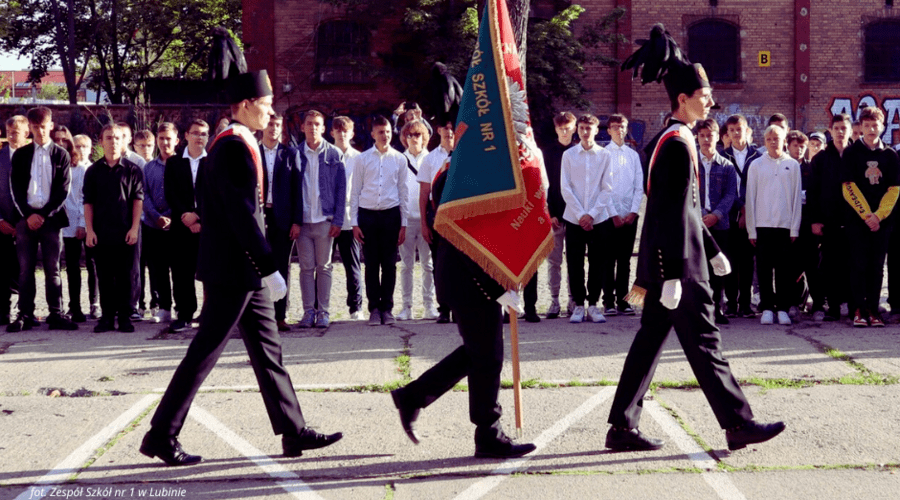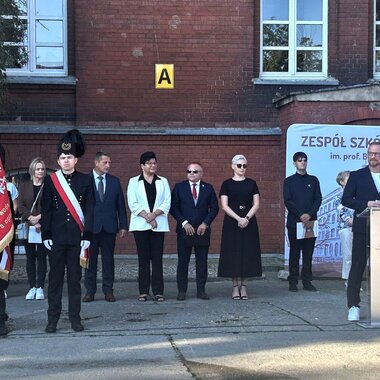Hello, Competent People! - the eighth edition of KGHM’s educational programme is beginning
With the start of the new school year, 520 first-year students of technical and trade secondary schools joined KGHM's ‘Competent in the Industry’ educational programme. Its aim is to support the education of young people based on knowledge and technologies important for the development of the copper industry in Poland. The programme is implemented in cooperation with the Ministry of Education.
KGHM Polska Miedź S.A. has been working with schools in the Copper Belt for eight years. As of 1 September this year, there are 2240 students in patronage classes in 10 schools in the region (Lubin, Legnica, Polkowice, Chocianów, Bolesławiec, Głogów and Wschowa). The trades that KGHM promotes are closely linked to the employment needs of the company's divisions. The supported schools teach 15 technical professions in the areas of mining, metallurgy, electrical engineering, mechatronics and automation, among others.
Education for the future of the Copper Belt
‘For years, we have been supporting the education of young people in our region at many levels. We provide access to teaching materials, organise apprenticeships, equip workshops in patron classes and award scholarships for the best. We also support the development of soft skills through regular meetings and training sessions, and promote sports and educational initiatives. In our activities intended for young people, we also try to respond to the interests of the students and guarantee that they also have a bit of fun. To show that KGHM is made up of really interesting people’, said Magdalena Lipińska, General Director for Human Resources Management at KGHM Polska Miedź S.A. ‘As the largest employer in the Copper Belt, we understand the responsibility we have. This is why we strive to support our technical school students and encourage them to take up work at the Copper Company in the future’, she added.
The ‘Competent in the Industry’ programme offers many benefits to the students of classes sponsored by the KGHM, including the possibility of receiving a scholarship for special achievements or an offer of employment at KGHM in the form of an internship programme. As part of its efforts to encourage young people to choose KGHM as their first employer after graduation, the company also organises training courses on how to properly prepare for a job search, write a resume and participate in recruitment procedures. As a result, graduates of the programme can plan their academic and professional careers more consciously. Each ‘Competent’ graduate receives a document from the school confirming completion of the sponsored class, which is an important advantage when applying for a job at the company.
KGHM treats young people as a priority
The programme ‘Competent in the industry - KGHM as a key partner in vocational training’ was launched in 2018. In addition to the schools, representatives of the Company's Branches and Head Office - coordinators and practical training instructors - are involved in the project. Currently, more than 2,000 students in 10 schools in the Copper Belt are educated in classes sponsored by KGHM. The sponsorship covers such specialities as electronics, electrical engineering, automation, processing, mechatronics, mining and metallurgy, among others. More than 535 of the Company's employees are 'Competent' graduates. Every year, students of sponsored classes participate in the ‘Competent Gilbert’ mining and metallurgy knowledge competition organised by the company.
Details of KGHM's 'Competent in the Industry' education programme are available at: kghm.com/pl/kariera/dla-uczniow/kompetentni-w-branzy














